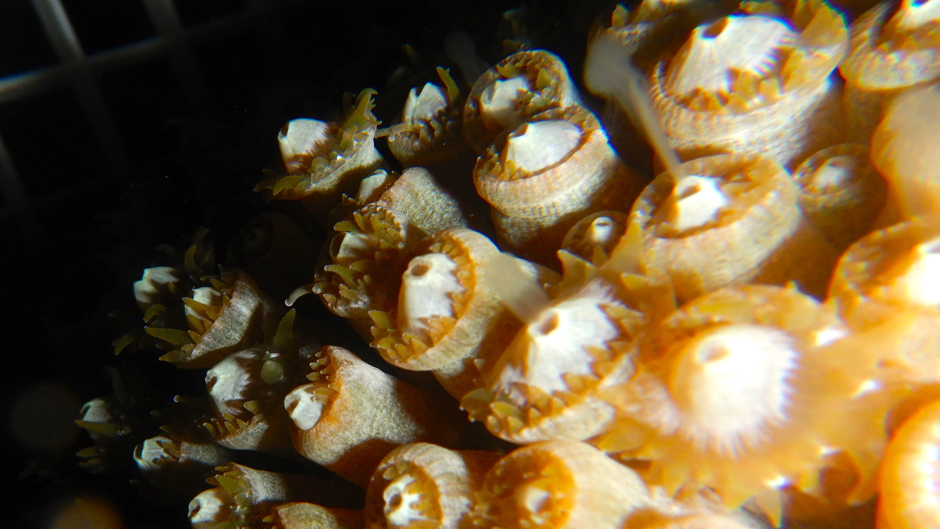MIAMI—Five species of corals rescued during a recovery mission in the Dry Tortugas spawned in captivity at the University of Miami Experimental Hatchery this week. The healthy corals were collected by the Florida Coral Rescue Team from June 30 to July 4 in the Dry Tortugas National Park ahead of the coral disease front that has been progressing through the Florida Keys.
On Monday, August 19, during monitoring by UM researchers, four colonies of Montastraea cavernosa, commonly known as the great star coral, released sperm for 1 hour beginning at 9:53pm. Shortly after, at 10:20pm, a female of the same species released eggs. The UM Coral Rescue team put the sperm into petri dishes and added the eggs from the single female equally across the different males. The following morning, the fertilized eggs had started dividing, and by Wednesday swimming larvae had begun to settle on ceramic plugs. The UM team plans to raise these new coral recruits into juvenile corals to support future reef restoration and research.
The following nights, the team also observed brain coral (Pseudodiploria strigosa), elliptical star coral (Dichocoenia stokesii), mountainous star coral (Orbicella faveolata), and smooth flower coral (Eusmilia fastigiata) spawn.
“We are excited that these corals are doing very well,” said UM Rosenstiel School Associate Professor Andrew Baker. “They acclimated to removal from the reef, transport, and relocation to hatchery conditions and spawned as they would have in the wild.”
The UM Rosenstiel School campus is serving as an intermediate holding facility to preserve the genetic diversity of the rescued coral species.
The Coral Rescue Team is led by the Florida Fish and Wildlife Conservation Commission and NOAA Fisheries, and includes the Association of Zoos and Aquariums, Florida Aquarium, Florida Sea Grant, National Park Service, Florida Department of Environmental Protection, Florida Keys National Marine Sanctuary and Nova Southeastern University.
Coral Collection Cruise Additional Partners include the UM Rosenstiel School and The Nature Conservancy
Progress for the Florida Coral Rescue Project can be tracked online.

